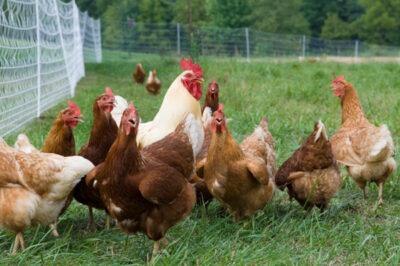
Image source: Sheknows.com
A new California egg law is impacting farmers, and ultimately consumers, from other states.
In fact, lawmakers in multiple states are claiming that the egg law is interfering with interstate commerce. Opponents of the new law feel that California’s animal welfare concerns are digging into the pockets of heartland farmers. Meanwhile, the law actually could benefit free-range and cage-free chicken farmers throughout America.
The chicken egg law prohibits the sale of eggs in California if the chickens lived in “factory cages” – defined as a cage in which a hen cannot stand up, turn around and spread her wings. The law sets standards for how large cages can be if eggs are sold within the borders.
Missouri Attorney General Chris Koster, whose state sells about 540 million eggs to California annually, sued California this year in federal court. The egg lawsuit argues that the new law violates the interstate commerce clause in the US Constitution.
Missouri is not the only state upset about the California egg law, and critics of the farming legislation claim that the initiative affects agriculture policy beyond its borders.
This might just be the most comprehensive guide to back to basics living ever published…
California has passed more than 350 farming regulations in recent years. The state’s egg producers were granted several years to comply with the law so that larger chicken cags could be purchased.
The controversy began in 2008 when voters passed a law requiring commercial chicken farms within the state to house their chickens in larger cages. In 2010 the state legislature broadened that requirement to apply to any eggs sold in California, thereby impacting other states.
Egg producers in Missouri would have to spend about $120 million on new chicken coops and will in turn be forced to raise production costs by 20 percent, Koster said. One-third of the eggs produced in Missouri every year are currently transported to California for sale.
US Republican Representative Steve King argued that the Constitution gives only Congress the power to regulate state commerce and that California exceeded its authority.
“Any state, including California, is free to regulate, even over-regulate their producers, but not to regulate the other 49 states,’’ King said.
Story continues below video
Some, though, say if the federal courts rule against California, it could mean that states will no longer have the power to ban pesticides, institute food labeling laws, draft invasive pests eradication policies, or other variations of animal welfare laws.
Humane Society CEO Wayne Pacelle said the law is needed:
California voters and legislators have made it clear that extreme confinement of laying hens is inhumane and unacceptable. Now it’s time to put these principles into action, with producers and retailers shedding cage confinement and shifting toward cage-free eggs. Cage-free production will be fully compliant with the legal standards soon to take effect.
An egg industry economic analysis study showed that converting to a cage-free egg system is indeed feasible, the Humane Society said. Food corporations such as Burger King, Hellmann’s, Compass Group, Sodexo, Marriott and Aramark are converting to cage-free egg producers. California lawmakers are reportedly hoping that their new animal welfare practices will spark similar legislations in other states.
Sign up for Off The Grid News’ weekly email and stay informed about the issues important to you
 Off The Grid News Better Ideas For Off The Grid Living
Off The Grid News Better Ideas For Off The Grid Living



